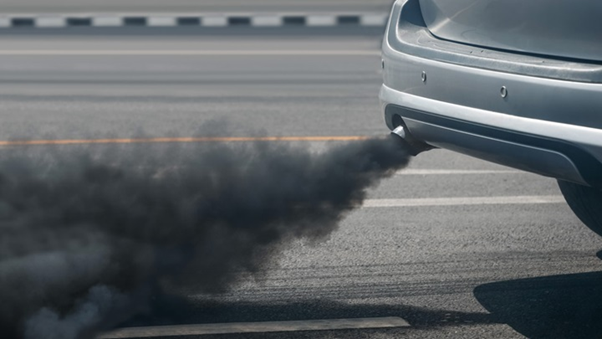Black smoke from your car exhaust: what’s the cause in diesel engines?

Your car gives you warning signs that there is something wrong with it. Some signs are not straightforward and could mean something else, which is why you brush them off and drive as usual, but black smoke is not one of them. If black smoke is coming out of your car’s exhaust, it only spells bad news. What could it mean? Find out here.
For diesel engines, the common reason black smoke comes out of the exhaust is incomplete combustion or a problem with the fuel supply. This happens due to a number of things and the following issues contribute to it.
What causes black smoke in diesel engine cars?
Clogged air filter
When the air filter is clogged, the air supplied to the cylinder is not sufficient. This results in more fuel getting burnt. Black some is a by-product.
If it is the clogged air filter to blame, you will also notice that when driving the car under pressure, heavier and thicker smoke comes out.
Bad fuel injector
Fuel injectors are also vulnerable to clogging. When this happens, the supply of fuel is not at its normal level. When the fuel sprayed into the cylinder is too much, the engine runs rich and there is not enough air in the chambers, black smoke is the end result.
Dirty EGR valve
An EGR (exhaust gas recirculation) valve is responsible for reducing the emission of dangerous substances by recirculating the exhaust gas. Some of its gets put back to the combustion chambers. A dirty EGR valve won’t function as intended and black smoke will come out of the exhaust due to an imbalance of gas circulation.
How do you avoid this from happening?
Ensure the air system is clean and functional
Being that a bad air supply causes problems with combustion, it is imperative that the air system of your car is clean and functioning well. You can ensure this by making sure air filters are clean and free from a collection of dust and dirt. Replace the air filters regularly when you see dust buildup. It’s a cheap maintenance step.
Use fuel additives
Fuel additives were designed to clean out the deposits that build up in the fuel system over time. Deposit buildup can cause a lower fuel economy, bad engine performance, and the black smoke problem. Fuel additives are easy to use and are accessible.
Inspect the Mass Airflow Sensor
The Mass Airflow Sensor is responsible for controlling the amount of fuel in the combustion chamber based on the mass flow rate of air entering the engine. Its goal is to balance the mixture of air and fuel, but when this sensor is faulty, it gives off the wrong signal, possibly leading to an oversupply of fuel. And as stated above, an oversupply leads to partial burning which leads to… yes, black smoke.
In some cases, cleaning the sensor and reinstalling it does the job. In other cases, it needs to be replaced entirely.
Final thoughts
Black smoke is never a good sign. As soon as it shows up, investigate where it’s coming from or bring your car to your trusted mechanic to save the engine from any further damage.